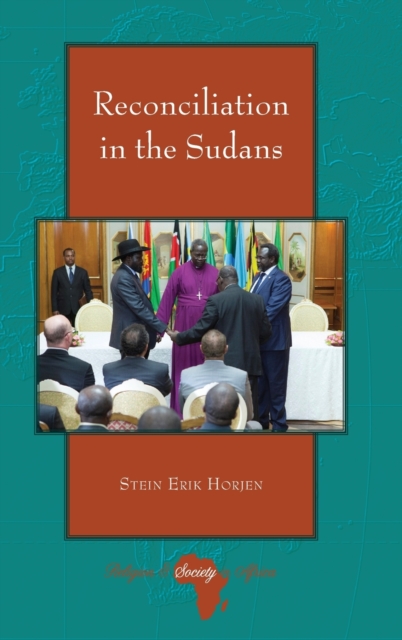
Reconciliation in the Sudans Hardback
by Stein Erik Horjen
Part of the Religion and Society in Africa series
Hardback
Description
In 2005, the Government of Sudan and the Sudan People's Liberation Movement (SPLM) signed the Comprehensive Peace Agreement (CPA) that ended the longest civil war in African history.
Stein Erik Horjen argues that although this second civil war was not a religious one, religion still played an important role in the conflict.
Ensuring freedom of religion was a high priority for the SPLM and for the Sudanese churches, which were instrumental in preparing the ground for the 2005 agreement in the same way they had been in facilitating the Addis Ababa Peace Agreement in 1972. Focusing on the pivotal role of the Sudanese churches through a grassroots peace process called People to People, Horjen examines the churches' work in ensuring the success of the peace talks between the SPLM and the government sealed by the 2005 Peace Agreement.
Taking up the role as the voice of the voiceless, the Sudanese churches challenged and criticized the military and political leaders in regards to abuses of power. In Reconciliation in the Sudans, Horjen details the tremendous suffering of the people during recurrent conflicts in Sudan and South Sudan.
Understanding the history will allow the reader contextual insight into the latest conflict that erupted in South Sudan in 2013.
The failure of including mechanisms for reconciliation in the CPA can be considered a main reason for this latest war.
Information
-
Available to Order - This title is available to order, with delivery expected within 2 weeks
- Format:Hardback
- Pages:204 pages
- Publisher:Peter Lang Publishing Inc
- Publication Date:08/06/2016
- Category:
- ISBN:9781433133275
Information
-
Available to Order - This title is available to order, with delivery expected within 2 weeks
- Format:Hardback
- Pages:204 pages
- Publisher:Peter Lang Publishing Inc
- Publication Date:08/06/2016
- Category:
- ISBN:9781433133275










